Just four years ago I avoided speaking in public. Yet, to get ahead in my job, I knew that I had to start saying yes to invitations to speak. That meant I had to figure out how to get over my fear of public speaking.
Jump cut to today and now I frequently give webinar trainings, get interviewed for podcasts and video blogs, speak at conferences, and present in front of groups large and small. Public speaking has helped my career in more ways than I can count.
Here’s how I got confident and conquered my fear of public speaking.
Stop avoiding public speaking
This may seem like a Catch-22, but to get more confident about public speaking you actually have to do public speaking.
Avoiding it doesn’t help at all, it just compounds the fear by making public speaking something that you’re not familiar or comfortable with.
The more public speaking you do, the better you’ll be at public speaking.
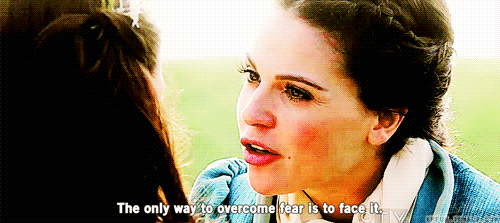
Be one with your nerves
Even the best public speakers can get nervous. It’s a very normal response in a situation that gets your adrenaline flowing.
Don’t focus on your nervousness and don’t point it out to your audience either. If they know you’re nervous they’ll pay more attention to your shaking hands and sweaty brow instead of what you have to say.
If you accept that being nervous is natural and inevitable, you won’t be as freaked out by it.
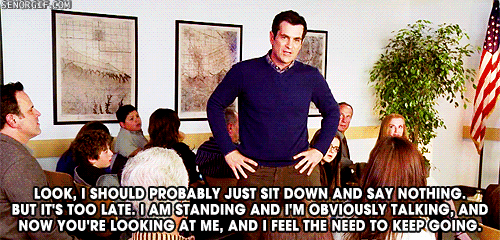
Practice, practice, practice
It’s not about “practice makes perfect”—that’s too much pressure. It’s about practice makes confident. If you’re confident you’ll be less nervous.
It’s easy to tell when someone has rehearsed and when they haven’t. Practice what you’re going to say and you’ll be more relaxed and interesting to listen to.
I rehearse every training and presentation at least three times all the way through. I’ll also rehearse the most important sections, especially the beginning and the end, even more often so I can nail them. The extra time that practicing takes is well worth the confidence boost.

Don’t memorize your talk
Memorizing what you’re going to say word for word can actually make you more nervous. When it comes time to do your presentation, you’ll spend all your energy and attention trying to remember what you memorized. Instead practice and make a short outline of key points to refer to if you get lost.
If you forget something you’ve memorized, it’s harder to wing it. Even if you remember it all, memorization can make you come across as stiff and artificial, which can turn your audience against you.
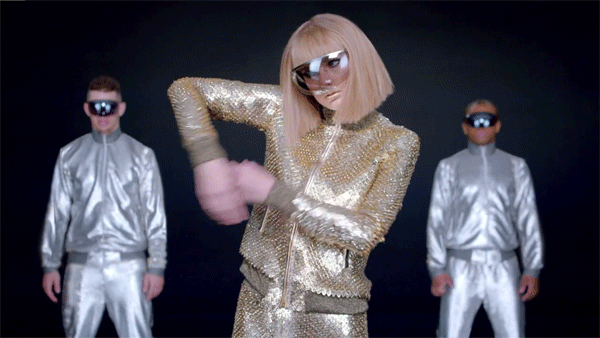
Record yourself
Recording yourself is a fantastic way to decrease your nervousness because you’ll know that you’ve polished your presentation. If you’ll give your talk standing up, then stand up when you record yourself. Put on the outfit you plan on wearing to see if it makes you look uncomfortable or awkward.
As you watch the recording, you’ll identify and fix both your presentation style and content. You’ll notice distracting facial expressions and body language that needs improvement. You’ll also hear parts where you need to slow down or put a little more enthusiasm into your voice.
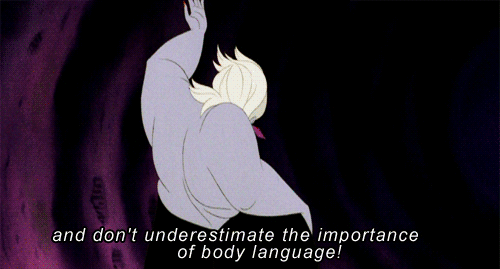
Have a drink
No, nothing alcoholic. If you’re a drinker, save the toast for the celebration afterwards.
You don’t want to be dying of thirst while you’re speaking, but you also don’t want the distraction of a full bladder. Have a big glass of water an hour before you start then take a nature break with plenty of time to spare. Also, keep water handy when you speak, even if it’s only for a few minutes.

Show up early
Running late is guaranteed to amp up your nervousness. Arriving early at your venue will help you deal with surprises, like if you’d requested a table or a projector and someone forgot to set them up.
Being the early bird will also give you time to get comfortable, open or close windows to adjust the temperature of the room, and arrange your materials how you like them.

Then relax, collect your thoughts, and get ready to give your most confident presentation yet.
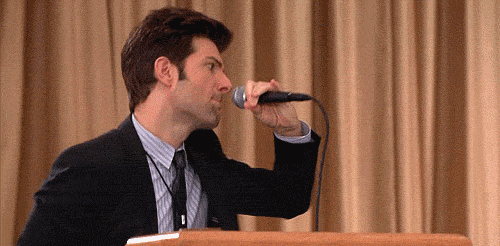
Lauren Girardin is a marketing and communications consultant, writer, and trainer. Find her on Twitter at @girardinl.





Give yourself every opportunity to make eye contact with your audience. And not just a few select persons in the front, but the sides and the back of the room too. Too many people make the mistake of either reading what they have on notes pages, or reading a deck of slides. You can’t be expected to have everything memorized (and it would be a lousy talk if you did), but try to minimize the times when you feel compelled to look away from your audience. Your cue cards should provide just that: cues for the things you want to convey, and not a full script. When your audience can feel like you’re having a conversation with them, and telling them a marvelous story, they’ll enjoy it more, and so will you. I think they’ll also pay more attention when they feel you’re looking at them. So if you don’t want to experience the panic of “losing your audience”, look up, smile, and talk to them.
Save some room for dessert. People often feel compelled to shove everything in a talk. Leave some things out, that only the curious or keen would be interested in, but keep the information at hand. Somebody will likely ask about the material you omitted, and you can pull it out of your back pocket as a slide at the end of your deck. You’ll look prepared, and they’ll feel extra smart because they’re asking you about something you thought was important enough to explore. And they’ll remember you as a terrific speaker BECAUSE you made them feel smart.
Obviously, what you omit should not seem to leave any gaping holes. But ask yourself if you can successfully segue from A to C without needing to rely on B. If so, then maybe B is something you can save for that back pocket.
One of the best academic speakers I’ve ever seen is psychologist Robert Sternberg. Sternberg always starts with an anecdote and analogy about something very familiar to most people. This puts everyone at ease, creates a little bit of intimacy, and makes them feel like they already understand what he’s about to talk about. It serves as a very effective bridge to introduce content that is a little more challenging, since people can feel like if it doesn’t make instantaneous sense, it will assuredly do so in a few moments; after all, at a deep level, they already understand what he’s talking about.
The fear people have of public speaking is largely based on the perception that they will be judged from the get-go. No one starts judging until you start faltering, and maybe not even then. The more you talk to them, the less they think about judging. My motto is: your’re at the front, they’re at the back, anything you say goes.
Finally, don’t be afraid to engage your audience. Ask them questions. Those could be rhetorical, but they could also inform the direction of what you say. For example, what do people already know about your topic? what are their expectations about X? what do they think most other people expect or think about that topic? Again, the more it feels like a conversation, the more you and they will enjoy it.
Joining Toastmasters is a proven solution. It helps you learn while mastering public speaking. It is fun, educational and effective.